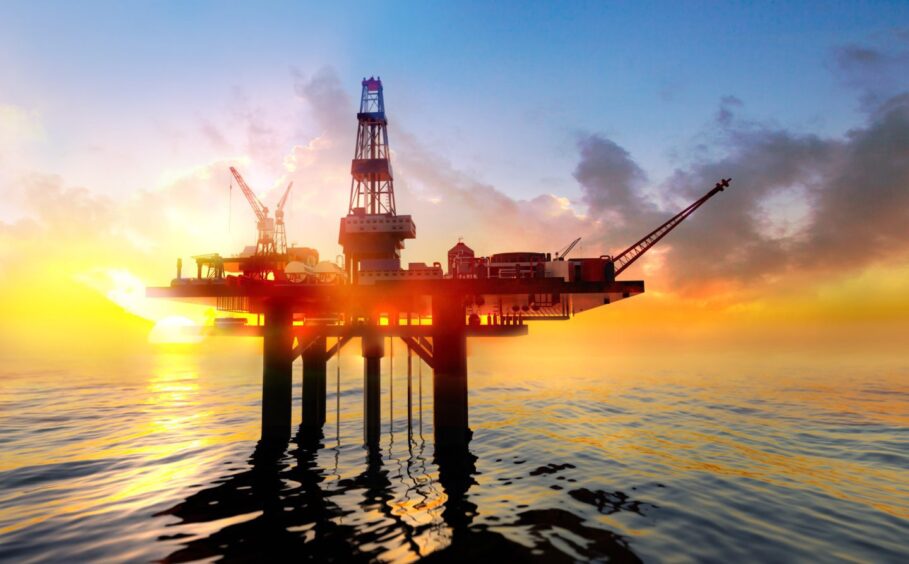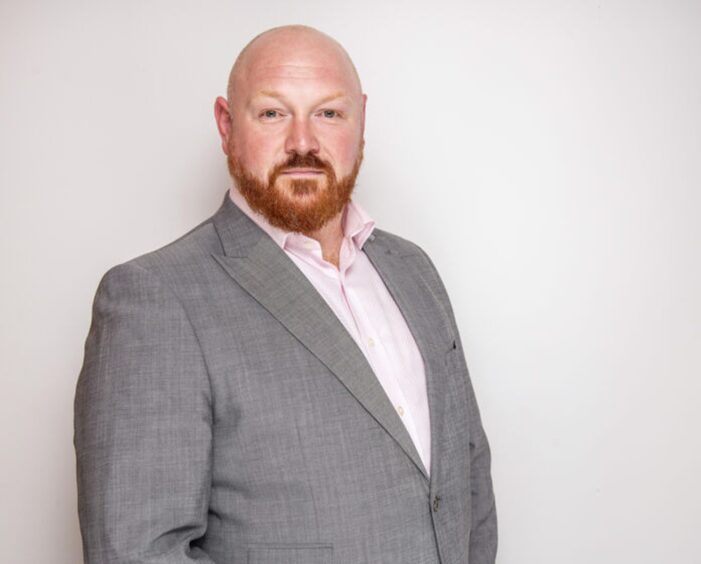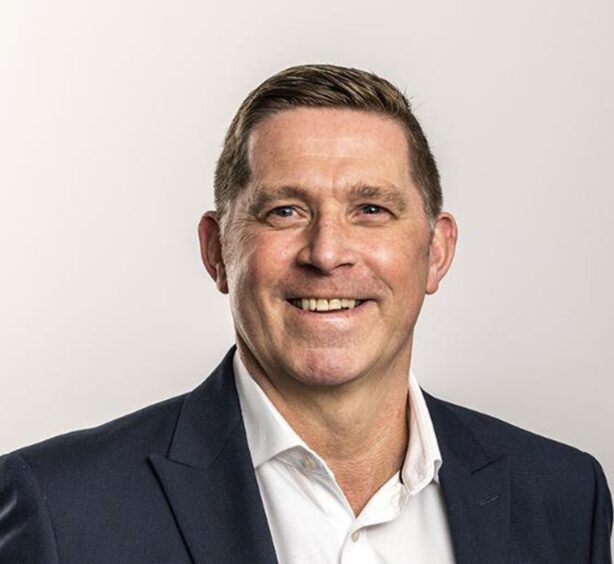
Much has been said about how UK offshore expertise hard-won in the harsh environment of the North Sea creates demand across the globe.
The oft-proven experience is that in every offshore basin around the globe you won’t have to wait long or go much further to hear the uniquely lilting tones of an Aberdeen native or a Geordie.
These same skills and expertise are also being counted on to support the delivery of the transition from oil and has to cleaner forms of energy, particularly in offshore wind and soon carbon capture and storage (CCS).
But what is maybe less discussed is how standards in health and safety underpin what makes North Sea goods and services so attractive in other regions.
From Aberdeen to the world
Gavin Sim, managing director for Alba Gaskets feels a North Sea track record – and the standards required to build one – has been a key attraction as his firm grows its export sales.
Recently, the company celebrated a “near six figure” deal supplying gaskets manufactured in Aberdeen to Petronas’ Kaswari carbon capture and storage (CCS) project being developed off the coast of the state of Sarawak, Malaysia.
Although the firm adopted American Petroleum Institute standards for its patented Rapid Integrity Gasket (Alba-RIG) to be used in the Malaysia CCS scheme, the goods have been tried and tested in the North Sea.
The manufacturer is aiming to double its exports while maintaining its business in the UK’s offshore oil and gas sector.
Sim said: “Export markets get confidence if you can demonstrate a track record in the North Sea. They know the product will be a decent standard. When something is installed they want it to operate safely. Its longevity is often due to correct testing and accreditation.
“You can’t get your product into the North Sea unless you have all your ducks in a row. That has given us a great headstart into international markets.”
Standards in clean energy
CCS in particular is an area where the UK has firmly planted a flag proudly flying its credentials.
Guidelines pioneered by Offshore Energies UK (OEUK) – reaching back to the days when the trade body was still called Oil and Gas UK – have long been used globally particularly in wells topics.
More recently, OEUK produced the world’s first guidelines for how to decommission wells in order so they can be reused for CCS.
Commissioned by Department of Business, Energy & Industrial Strategy (BEIS), OEUK’s guidelines provide industry recommendations and good practice for well decommissioning for CO2 storage based on recent North Sea and international experience in CCUS.
Forged in the fire of disaster
But no one who has lived or worked in the North Sea forgets how and why standards on health and safety largely came to be.
Forged in the wake of the deadly tragedy of Piper Alpha which killed 167 men, rules have since been adopted to prevent it from ever happening again.
And while disaster has continued to strike since the explosion in 1988, it has not been at the same scale.
Meanwhile, the growing offshore wind sector is increasingly grappling with safety issues. Last year, safety incidents nearly doubled between 2022 and 2023 in the global offshore wind sector, according to a report from G+.
Speaking at the recent Energy Exports conference in Aberdeen, Ed Randall, head of business development Europe for global energy services provider, Kent, said the industry has learned lessons.
“If we think about the oil and gas industry generally, we know the industry has had a number of really quite horrendous incidents. But of course what that has meant is the industry has learnt.
“There is absolutely the opportunity to take that learning into other energy transition sectors.
“We do a lot of offshore wind design work. When you start to look to the risk about getting people offshore to turbines versus how it would be approached in an oil and gas environment, you could actually see quite a big gap there.
“It is an area of really good practice we can take into a number of different energy transition spaces.”
OEUK’s HSE manager Graham Skinner said progress has been made since the night the sea caught fire. At the heart of this is an approach that avoids simple box ticking exercises.
“Since the current UK Health and Safety regime was set up, following the Piper Alpha disaster, the UK has been recognised as a global leader in safety.
“The UK created a goal setting regime where the outcomes – safe operations – are defined but each company can determine the best way to achieve those outcomes.
“This regime allows for continuous improvement but also relies on cross-industry sharing of the good practice adopted and how to implement it effectively.
“It is because we focus on UK specific guidelines and UK legal requirements that we develop specific detailed guidance that is subsequently recognised globally.”
He highlighted that 2022 was the North Sea’s safest ever year – albeit this was not a signal to ease back.
He also admitted that the UK’s high standards are expensive and as a result it adds extra pressures on an industry already facing high costs.
He said: “We know that in a complex industry with multiple challenges we still need to work very hard in safety and health, so it’s a necessary expense.
“It is expensive though to operate at such a high level of integrity which is one of the reasons that the UK industry is struggling.
“Globally there is an argument it’s too expensive to implement the high standards of safety we have come to expect in the UK, but in practice international companies adopt the UK operating standards as global standards and many more governments are looking to enact similar regimes.
“The OEUK guidelines that are recognised globally are not gold plated, they allow member companies to comply with the law here and help identify good practice benchmarks and share good practice.
“Other areas of energy adopt similar approaches to safety, as this is the model preferred by safety regulators. At OEUK we are well positioned to share existing good practice and adapt our guidelines, where applicable, to address the whole energy landscape.”
Walter Thain, CEO of Three60 Energy, notes his firm operates worldwide, from 20 offices and hubs in Norway, Malaysia and has plans to open a Middle East operation. The private-equity backed company’s markets are largely oil and gas but also nuclear and defence and the company is moving into offshore wind and CCS.
“What’s really interesting is the UK has a very high standard and a very quantifiable regulatory regime,” he said.
“It is quite easy to manage your performance, and it’s quite clear you know what you need to be doing.
“A lot of the other geographies around the work look to the UK to have that high standard of regulatory regime and health and safety performance, also ESG performance.”
He said the US and Australia had similar high standards and that UK standards were a “great toolkit to have in your bag”.
“Do I hear other companies not wanting to do that? I don’t.
“They might not want to adopt the regulatory regime but they want the same standard.
“People want to look after the environment, they want to look after their people.
“I don’t hear anybody trying not to do the right thing regarding health and safety.”
Increasingly these standards will find themselves being adopted by the offshore energy industries of the future such as CCS and floating offshore wind.
He said: “The more and more activity starts to happen the more you’ll see a structured view in how performance and health and safety is being carried out across different industries.
“Whether you are putting an offshore installation in place, or an offshore wind facility in place or you’re decommissioning an asset, it is all the same regime you need to work under.
“I think other industries there is maybe poor performance just now.
“But the rigour will come as more work starts getting delivered across the different industries offshore.
“But you can never be complacent around this stuff – never.”
Recommended for you


 © Supplied by SPE
© Supplied by SPE © Supplied by Three60 Energy
© Supplied by Three60 Energy